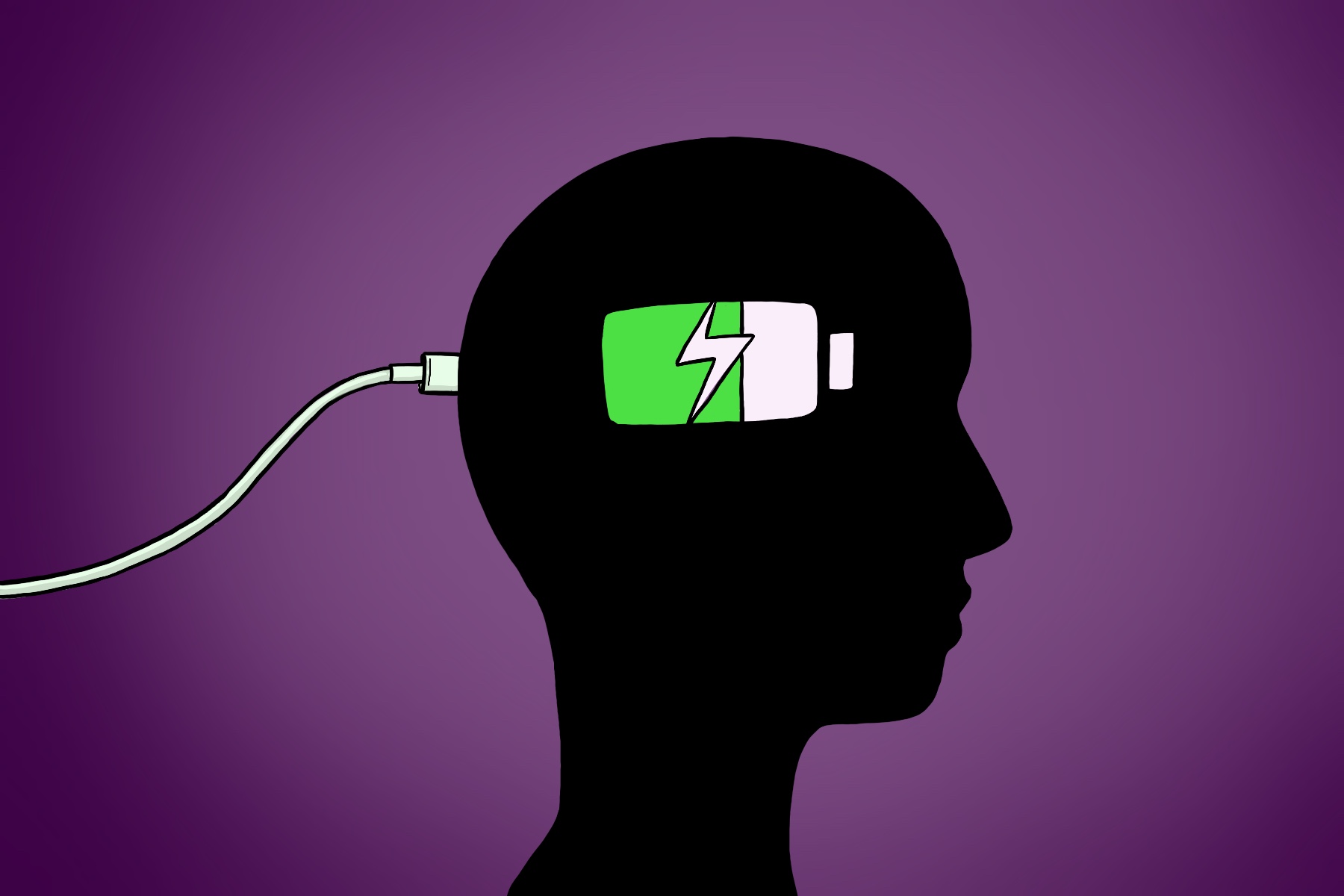One of the hardest things about being in college is finding a way to balance school, socializing and mental health. Even the hardest working individuals who thrive while grinding can experience depression, anxiety and burnouts. Even the most extroverted people can find themselves tired out at the idea of another day out.
While therapy and counseling are excellent ways of putting life into perspective, thereby treating anxiety or depression, these treatments can be costly and time-consuming. Since in-person counseling is out of the question for a lot of college students, here come mental health apps.
Mental health apps are a growing niche of apps that focus on tracking and sometimes treating symptoms associated with mental illnesses and stress. There are too many apps to name, and too many of these apps, while free to download, are only usable with a monthly subscription. To keep the options as budget friendly as possible, only apps that are completely free or have free “standard” plans will be listed.
https://www.instagram.com/p/Bz_4lNWgXo1/?utm_source=ig_web_copy_link
Journaling Apps
Recording personal feelings or the contents of the day is not a new idea, and the shift into the digital age has affected even the act of journaling with the advent of journaling apps. Journaling, in an app or otherwise, puts the day, the week, the month, etc. into perspective.
Jour is one kind of journaling app that makes an excellent entry into the world of mental health apps. With a clean design and visuals, Jour boasts more than 140,000 users and makes daily journaling easy.
This handy app asks three questions about your day and saves your responses, and you don’t have to include anymore about your day if you don’t want to. Jour also lets you set reminders for daily journaling, so you can do it at the same time every day. In addition to journaling, the app also includes informational sessions on a variety of topics such as self-affirmations and ways to deal with anxiety.
Another one of the easiest journaling apps is Daylio Journall. Daylio doesn’t require any actual typing, which can be extremely useful during depressive episodes when you might not have the energy to make wordy journal entries. On Daylio, you simply select how you feel on a scale and describe what you did that day with icons that represent actions such as reading, working, relaxing and more.
You can add activities to your line-up, write entries and even set daily journaling reminders. Daylio keeps track of streaks, activities and mood counts and makes a monthly mood chart to show the progression of your daily mood throughout the month. Daylio has a premium version that offers extensions of its services.
Mental Health Tracker Apps
Mental health tracking apps are similar to journaling apps in their ability to track mood and symptoms associated with mental illness or stress. A lot of mental health tracking apps, however, can also be more clinical and add an important dimension to keeping track of mental health. These kinds of mental health apps are crucial for those who think or know they have clinical depression and anxiety, as they can be a big help diagnosing mental illness.
Mental health tracking apps do not replace doctors and clinical diagnosis, but lots of doctors use the questionnaire techniques in these apps to diagnose depression. By keeping track of your symptoms, it makes it easier to know how severe your condition is and allows you to treat yourself properly.
Depression Test is an app that utilizes the nine-item depression scale of the Patient Health Questionnaire (PHQ-9). The PHQ-9 is a nine-question questionnaire about key symptoms of depression that also asks about the severity of each symptom within the last two weeks. On the Depression Test app, you can take and retake the test whenever you want.
With honest answers, the test is meant to assess whether or not you may have depression, how severe it is at the time of administration and whether you should see a doctor about your symptoms. The app also saves the results of each test taken, and the data is visible on a graph in the “History” section of the app. Under the “Info” section, users find information about the PHQ-9, information about the app and resources for those with depression.
Moodpath is a similar mental health app that tracks symptoms of mental illness. The biggest draw to Moodpath is the structure. Moodpath asks a set of questions three times a day in the morning, afternoon and evening. A lot of the questions are similar to the PHQ-9 questions in the Depression Test app, but there’s a larger variety of questions on Moodpath that cover self-harm, thoughts of death, specific phobias or anxieties and more.
Every two weeks, Moodpath gives you a report based on the last two weeks of questions and answers. It tells you if, in those two weeks, you seemed to experience a mild to severe depressive episode or if your answers indicated stress without evidence of a depressive episode and so on.
With this report is a summary of your most usual symptoms; it gives you resources and the option to talk online with a licensed professional or to generate a letter to give to your doctor if you have one and can afford to see them about your depression. Moodpath has audio sessions on a variety of self-care topics, though some of which can only be unlocked with their premium version.
Meditation Apps
While meditation might seem like part of a self-care fad, it’s an ancient practice that’s been proven to help treat a variety of mental health issues. The calming, mindful effect of meditation helps give perspective and assuage anxieties in those who are plagued with the tendency to overthink.
Even a few minutes of meditation a day can help calm the nerves and make the ability to put things into perspective easier. For beginners who have never meditated or don’t meditate regularly, guided meditation apps are a kind of mental health app that can be an amazing resource.
Probably one of the best-known meditation apps is Headspace. Headspace specializes in meditation for beginners. With a few questions about what you’d like to focus on or your experience level with meditation, Headspace tailors an introductory course into meditation for you that is 10 sessions long. While the app will give you a default session length based on your answers, the sessions can be three, five or 10 minutes long.
Each session is guided by a narrator, and Headspace also encourages users not to ignore sounds, feelings or errant thoughts, instead telling you to allow yourself to hear, feel and think everything until you tune it out naturally. The biggest downside to Headspace is that almost every meditation course beyond the introduction is only available with its premium plan, but the introductory course and those few free ones can be replayed over and over.
Oak is another meditation app. Oak is free and does not have a premium plan, though meditation courses that span several days are a separate expense. It has three “types” of guided meditation: “Meditate,” “Breathe” and “Sleep.” Under “Meditate” there are sessions for mindfulness, loving kindness and the unguided option. Under “Breathe” there are three sessions called “Deep Calm,” “Box” and “Awake.”
“Sleep” has two sessions, one with relaxing sounds and another with guided breathing. In the “Growth” tab of the app, you can see how many minutes you’ve meditated and how many sessions you’ve done in addition to how many breaths you’ve taken in your various breathing sessions. For the meditation sessions, you can customize the duration of each session, the background noise, the presence and length of a warm-up and whether the instructor is male or female.
Me Time Apps
With all of the other apps made specifically to track and assuage symptoms of your mental illness, apps that are tailored to give you some time to yourself are also an important kind of mental health app. These duty-free apps can let you play easy minigames or help you self-reflect, though the most important aspect is that they give you the time and space to breathe and be kind to yourself.
Sanity & Self is a self-care app aimed specifically at women. Sanity & Self is trying to build a community of women trying to better themselves by paying attention to their needs and getting, or listening to, the help they need. On the app, there are several session long course-like “lessons” on broad topics such as romance, anxiety, stress, self-discovery and more.
Like Headspace, Sanity & Self has a limited number of these “lessons” available for free, but there’s also a community of women who post about their problems for other women to read and reply to with assurance or advice.
#SelfCare is the app that’s there for you on your off days. Everyone’s had a day where they had energy for nothing. Getting out of bed is unthinkable, so you don’t, and you spend the day on your phone. #SelfCare is there for you when that happens. #SelfCare doesn’t shame you for your occasional all-consuming lethargy; instead it gives you a safe place to be drained and lazy if that’s what you need.
With clean, cartoony visuals and a soothingly pastel color scheme, the app setting takes place in your virtual bedroom. #SelfCare features calming minigames that include laundry sorting, tarot card selecting and even journaling from a prompt. There’s even a virtual cat in the virtual room that you can pet and that purrs when you get just the right spot. The entire app feels like a deep, calming breath or a sip of good tea.
https://www.instagram.com/p/B0EVta4AHol/?utm_source=ig_web_copy_link
When life just seems to overwhelm you with worries, your phone can be one of the most useful tools in combatting the mental drudge that accompanies everyday life with a mental illness. The apps above can be a colossal help for keeping your mental health in check.
It’s important to note that these apps are not a replacement for a doctor or other trained professional’s diagnosis and treatment if you fear that your mental illness and its accompanying symptoms are severe. If you are in an acute crisis, such as contemplating suicide or self-harm or feeling otherwise severely distraught, and can’t or don’t want to reach out to a trusted friend or family member, call the National Suicide Prevention Lifeline at 1-800-273-8255 or contact the Crisis Text Line by texting HOME to 741741.
















